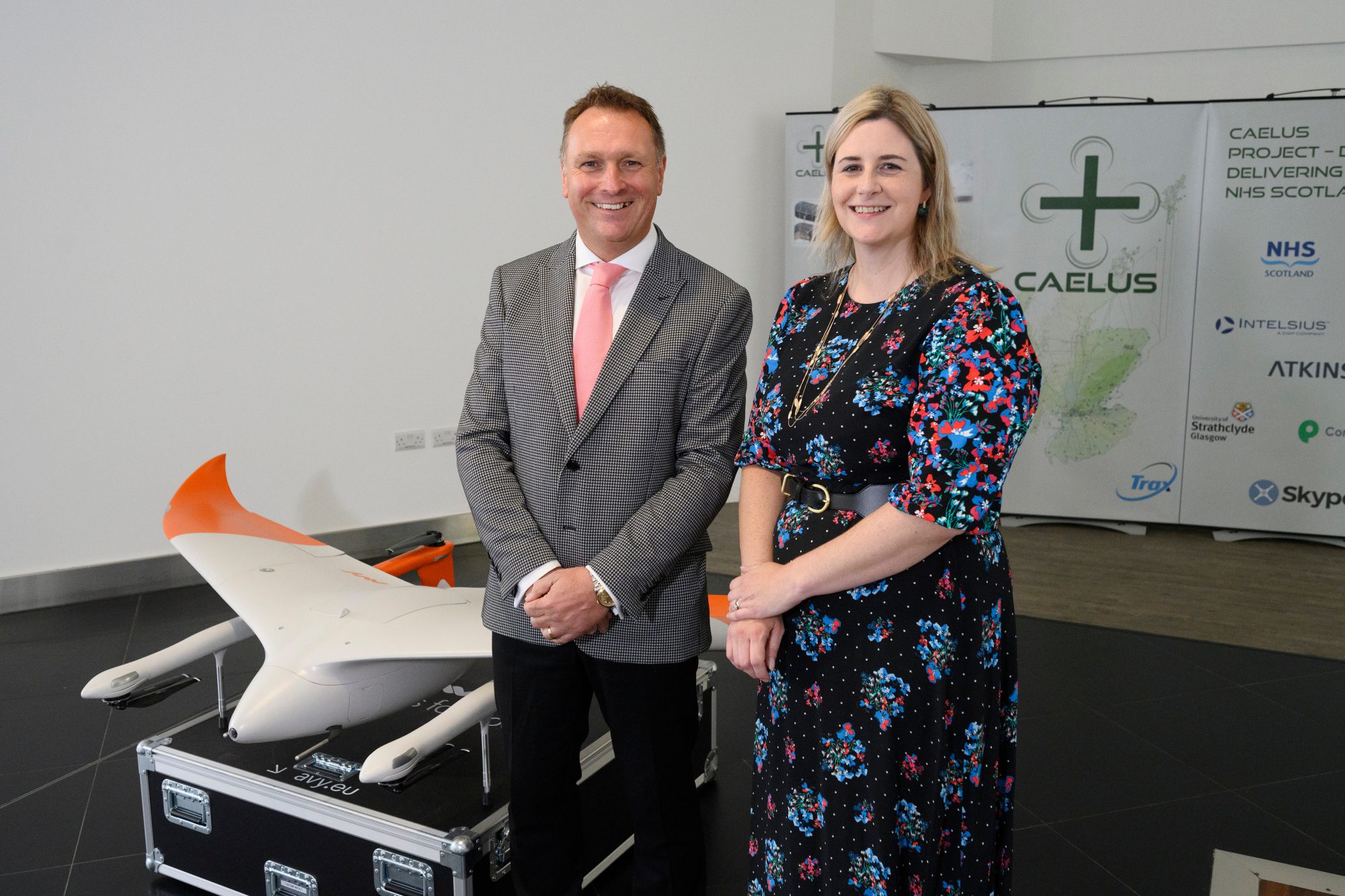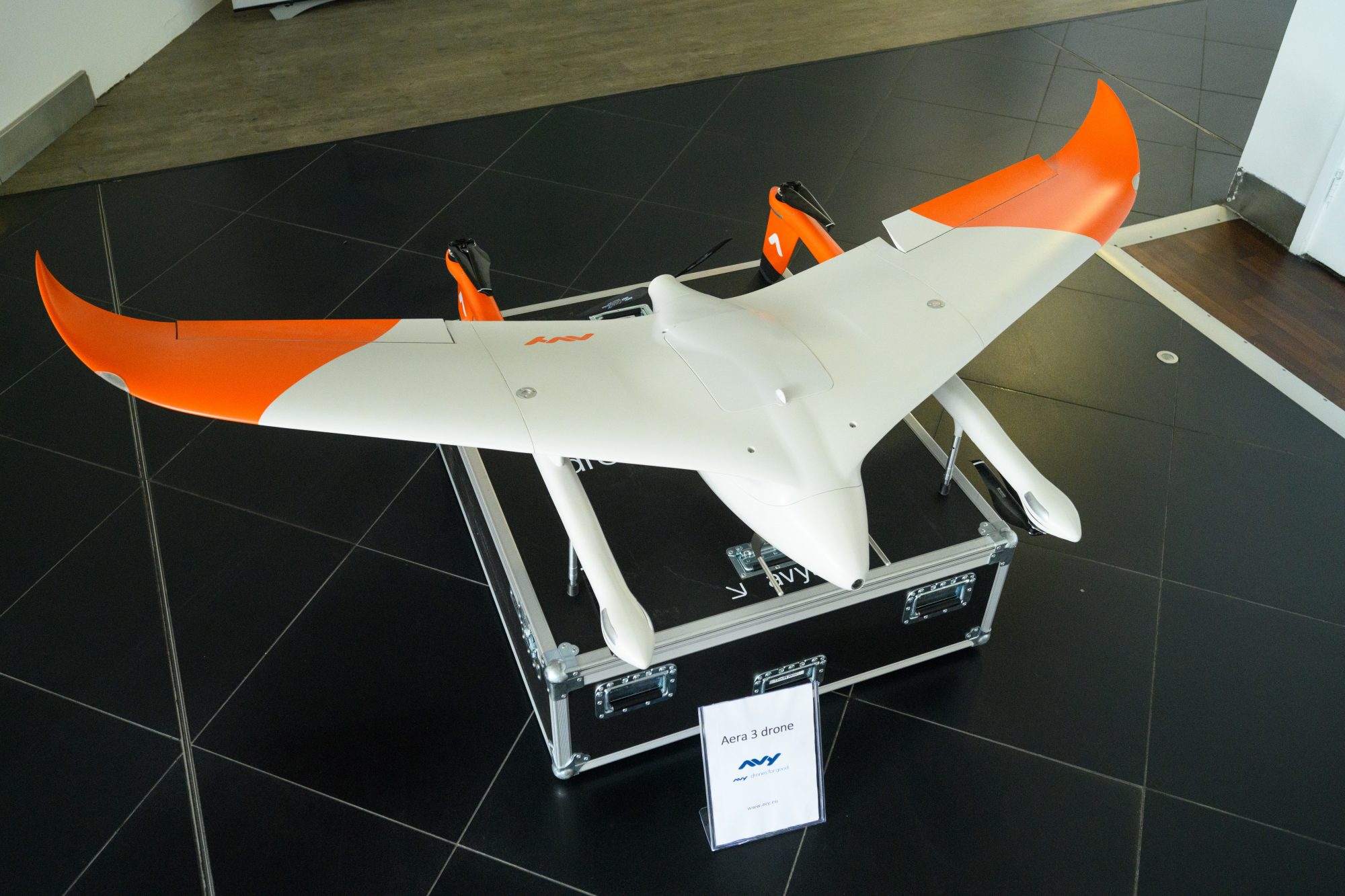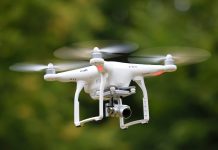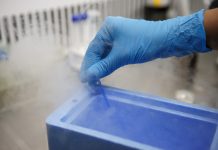A consortium led by AGS Airports in partnership with NHS Scotland will deliver the UK’s first medical distribution network using drones
CAELUS (Care & Equity – Healthcare Logistics UAS Scotland) has secured £10.1 million in funding from the Future Flight Challenge at UK Research and Innovation (UKRI) last month to launch the UK’s first medical drone network.
In celebration, consortium members, stakeholders and politicians gathered at Glasgow Airport for the official launch of the UK’s first medical distribution network using drones. A number of partners had exhibitions on show at the event and Scottish Government Public Health Minister Maree Todd gave a keynote speech.
CAELUS comprises 16 partners including:
- the University of Strathclyde
- NATS
- NHS Scotland
The medical drone project will supply remote areas with medical supplies
Together, the partners will deliver the first national drone network in the UK. The medical drone project will allow essential medicines, bloods and other medical supplies to be distributed throughout Scotland. This service will be especially useful for those living in remote communities.
Since securing £1.5 million in January 2020, the CAELUS consortium has designed drone landing stations for NHS sites across Scotland. The team have developed a virtual model (digital twin) of the proposed delivery network which connects hospitals, pathology laboratories, distribution centres and GP surgeries across Scotland.

NHS Scotland: “Once for Scotland” approach
NHS Scotland has promised a “Once for Scotland” approach to the project. The second phase will involve live flight trials so that Scotland can begin safely using drones.
The CAELUS project is set to revolutionise the way in which healthcare services are delivered in Scotland
Fiona Smith, AGS Airports Group Head of Aerodrome Strategy and CAELUS Project Director, said: “We were delighted when we heard we were receiving the £10.1m funding from UKRI to move onto the next phase of the project.
“The CAELUS project is set to revolutionise the way in which healthcare services are delivered in Scotland. A drone network can ensure critical medical supplies can be delivered more efficiently, it can reduce waiting times for test results and, more importantly, it can provide equity of care between urban and remote rural communities.
“As well as being able to undertake live flights we can begin to deploy the physical infrastructure needed to support the drones across Scotland. This will involve building prototype landing bases as well as digital and communication infrastructure. We will also work with local communities to ensure they understand why and how the drones will be used.”
CAELUS consortium member Skyports will operate live flight trials. The UK-based drone services provider is an experienced operator of medical and dangerous goods cargo flights. In fact, the company was instrumental in early trial flights with NHS Scotland in 2020 and 2021, flying over 14,000km in the region to date.

Launch of CAELUS at Glasgow airport
Caption: AGS Airports Ltd CEO Derek Provan with Fiona Smith, AGS Group’s Head of Aerodrome Strategy, who is leading the CAELUS project.
‘A leader in the third revolution in the aviation industry’
NHS Grampian’s Program Lead for Innovation, Hazel Dempsey, said: “We are incredibly excited to be the lead board for this high-end innovative project.
“Our aim, from an NHS perspective, is to test the use of drone technology in urban, remote, rural and island landscapes. We want to test if using drones to will improve important aspects of our logistics service, for example, to test the transportation of laboratory samples, blood products, chemotherapy, and medicine delivery. Ultimately, we want to explore if drone technology can speed up diagnosis and treatment of medical problems.
“This has the potential to improve services for those whose care is dependent on rail, ferry or airline timetables and help keep people at home where they can be supported by families and loved ones.
“This project intends to position the United Kingdom and NHS Scotland as a leader in the third revolution in the aviation industry.”
David Lowe, National Clinical Director for Innovation concluded: “This national, exciting ‘next stage’ programme of work builds on the success of CAELUS 1 launch which focused on the West of Scotland.”
Editor's Recommended Articles
-
Must Read >> An underwater drone can measure ocean acidification


















This first medical drone delivery project is a banger. its amazing to see how technology has made medical supplies delivery through drone possible.